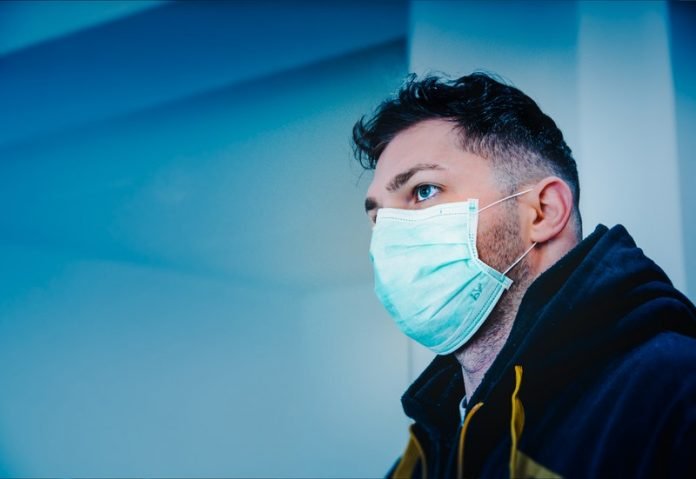
In a new study, researchers compared 14 types of commonly available masks and found that medical masks offer much more protection against droplet spread than cotton masks.
In addition, bandanas and balaclavas don’t work at all.
The research was conducted by a team at Duke University and elsewhere.
Previous studies have shown that face coverings are a vital tool in reducing the spread of coronavirus—but little research has been done to compare different kinds of masks.
In the study, the team made an inexpensive setup: people stood in a dark room and spoke the words “Stay healthy, people” five times into the direction of an expanded laser beam, which was recorded with a cell phone camera.
They used a computer algorithm to calculate the number of droplets.
The researchers found professionally-fitted N95 masks—hospital-grade protection worn by frontline workers in hospitals—reduced droplet transmission to less than 0.1%.
Surgical or polypropylene masks were not far behind, bringing droplet transmission down by 90% or more compared to no face-coverings.
Hand-made cotton face coverings provided good coverage, eliminating 70% to 90% of the spray from normal speech, depending on the number of layers and the pleating.
But bandanas only reduced the droplets by about 50% and neck fleeces actually increased the amount of spray, probably by dispersing the largest droplets into many smaller droplets.
But N-95 masks with valves performed roughly on par with cotton masks in terms of the amount of spray transmitted.
Health authorities have discouraged the use of valved N-95s.
The team says the findings have public policy implications, particularly in the United States where authorities have encouraged the public to use textile masks and leave the medical products to health care workers because they are in short supply.
One author of the study is Emma P. Fischer. The study is published in Science Advances.
Copyright © 2020 Knowridge Science Report. All rights reserved.



